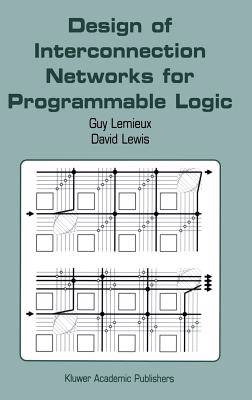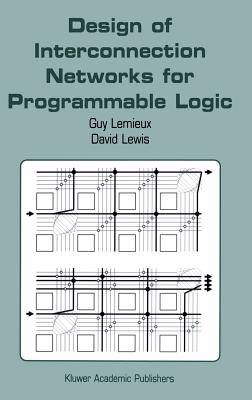
- Retrait gratuit dans votre magasin Club
- 7.000.000 titres dans notre catalogue
- Payer en toute sécurité
- Toujours un magasin près de chez vous
- Retrait gratuit dans votre magasin Club
- 7.000.0000 titres dans notre catalogue
- Payer en toute sécurité
- Toujours un magasin près de chez vous
Design of Interconnection Networks for Programmable Logic
Guy LeMieux, David Lewis
Livre relié | Anglais
181,95 €
+ 363 points
Format
Description
Programmable Logic Devices (PLDs) have become the key implementation medium for the vast majority of digital circuits designed today. While the highest-volume devices are still built with full-fabrication rather than field- programmability, the trend towards ever fewer ASICs and more FPGAs is clear. This makes the field of PLD architecture ever more important, as there is stronger demand for faster, smaller, cheaper and lower-power programmable logic. PLDs are 90% routing and 10% logic. This book focuses on that 90% that is the programmable routing: the manner in which the programmable wires are connected and the circuit design of the programmable switches themselves. Anyone seeking to understand the design of an FPGA needs to become lit- erate in the complexities of programmable routing architecture. This book builds on the state-of-the-art of programmable interconnect by providing new methods of investigating and measuring interconnect structures, as well as new programmable switch basic circuits. The early portion of this book provides an excellent survey of interconnec- tion structures and circuits as they exist today. Lemieux and Lewis then provide a new way to design sparse crossbars as they are used in PLDs, and show that the method works with an empirical validation. This is one of a few routing architecture works that employ analytical methods to deal with the routing archi- tecture design. The analysis permits interesting insights not typically possible with the standard empirical approach.
Spécifications
Parties prenantes
- Auteur(s) :
- Editeur:
Contenu
- Nombre de pages :
- 206
- Langue:
- Anglais
Caractéristiques
- EAN:
- 9781402077005
- Date de parution :
- 30-11-03
- Format:
- Livre relié
- Format numérique:
- Genaaid
- Dimensions :
- 168 mm x 243 mm
- Poids :
- 521 g

Les avis
Nous publions uniquement les avis qui respectent les conditions requises. Consultez nos conditions pour les avis.






